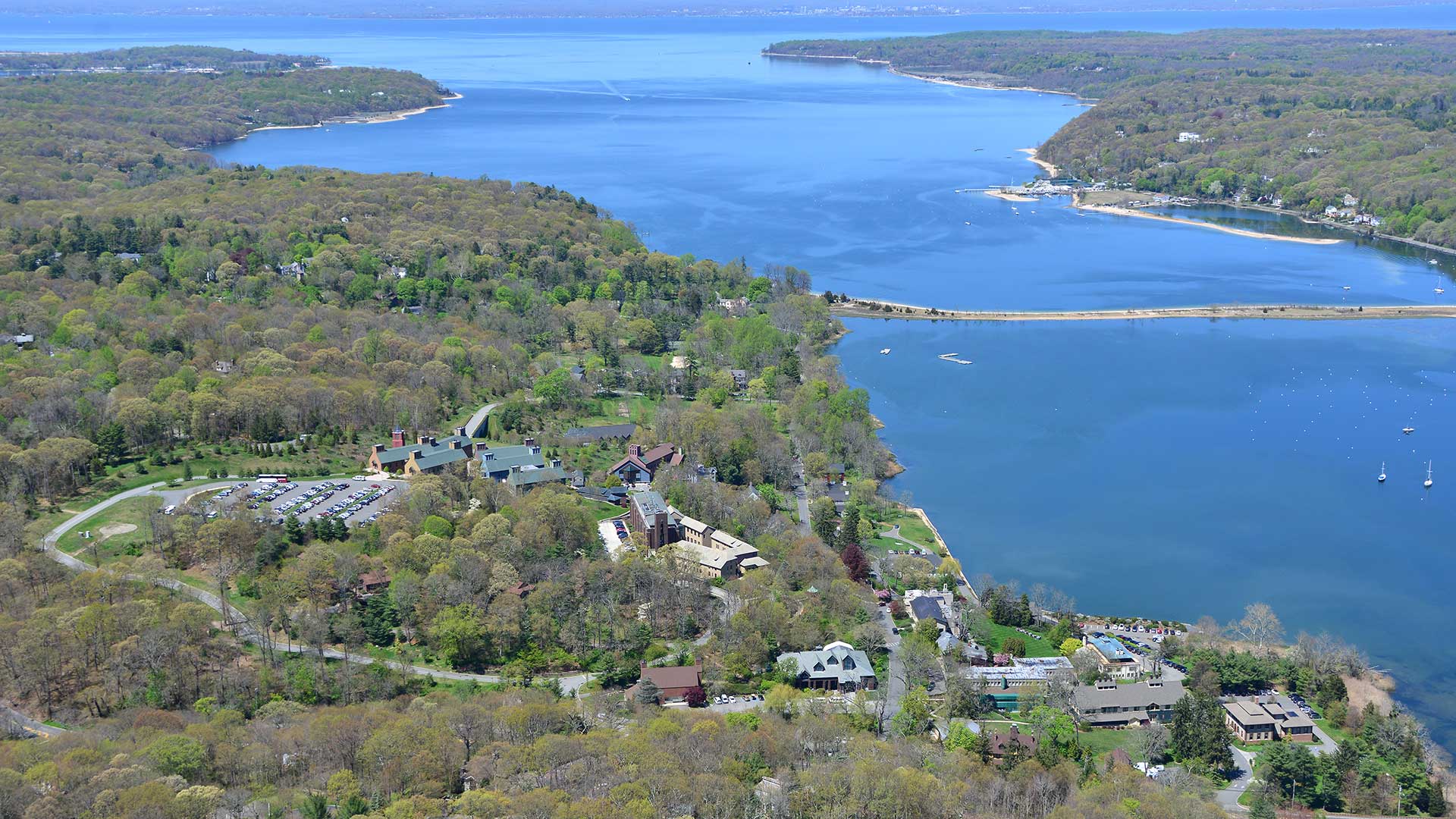Did you know Cold Spring Harbor Laboratory (CSHL) recycled nearly 75,000 pounds of metal and e-waste in 2024? How about the 7 million gallons of water the Laboratory now saves each year?
At CSHL, scientific discovery and sustainability go hand in hand. Since the first scientists arrived over 130 years ago, CSHL has taken its role as an environmental steward as seriously as its research. The Laboratory has committed to reducing its greenhouse gas emissions 85% (below 1990 levels) by 2050, in line with New York State goals under the 2019 Climate Leadership and Community Protection Act.
“We’re now in year three of our Energy & Sustainability Master Plan,” says CSHL Sustainability Manager Brandon King. “A lot of the projects we’re working on have multiple benefits for CSHL. They’re cutting costs, making us more energy efficient, and improving our infrastructure. These all help to significantly reduce our environmental impact.”

One significant way to reduce that impact is to keep reusable materials out of landfills. CSHL has teamed with Long Island’s Gershow Recycling and Arrow Scrap to ensure its scrap and e-waste are disposed of responsibly. In 2024, the Laboratory recycled over 23,000 pounds of e-waste—think printers, computers, and other electronics—and another 52,000 pounds of metal and appliance scrap.
CSHL has also launched several projects to offset or reduce its dependency on fossil fuels, as well as streamline its electricity and water utilities. These efforts are projected to save CSHL over $700,000 per year. The Laboratory recently entered the final phase of replacing all campus lighting with energy-efficient LEDs. This follows the installation of new electricity meters throughout CSHL’s main campus and new battery backups for the Hillside Data Center. A recent revamp of the water utilities for CSHL’s Delbruck and James Laboratories saves not only the 7 million gallons mentioned above but also over 250,000 kilowatt-hours a year. That’s enough electricity to run an industrial-sized central air conditioning system for a year or more.
These efforts are a component of CSHL’s Foundations for the Future expansion. Along with new buildings dedicated to neuroscience, brain-body physiology, and neuroAI, these projects help ensure that sustainable, cutting-edge science continues on CSHL’s harborside campus for years to come.
“By implementing eco-friendly initiatives across our laboratories, campus, and community, we strive to minimize waste, enhance efficiency, and promote environmental responsibility,” King says. “Our dedication to sustainability reflects our broader mission to advance science for the benefit of society while ensuring a healthier planet for future generations.”
Written by: Nick Wurm, Communications Specialist | wurm@cshl.edu | 516-367-5940
